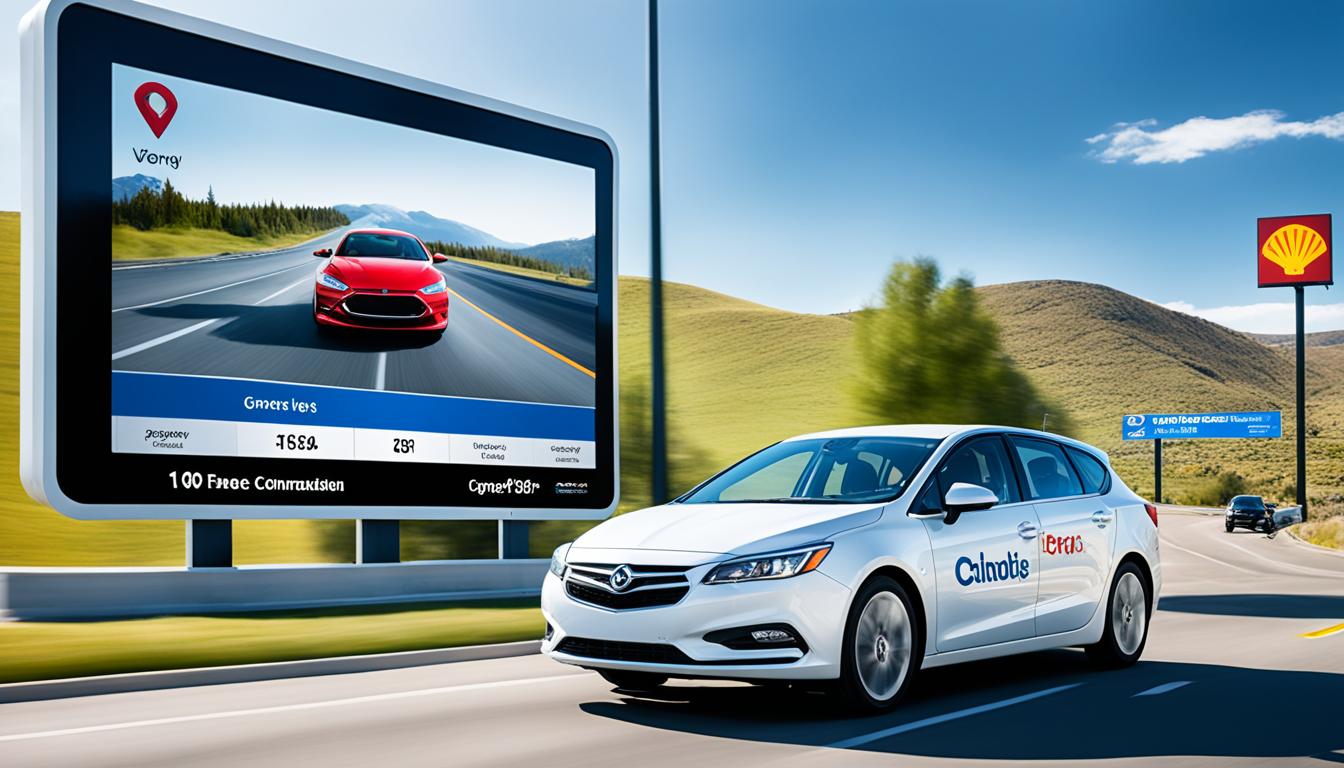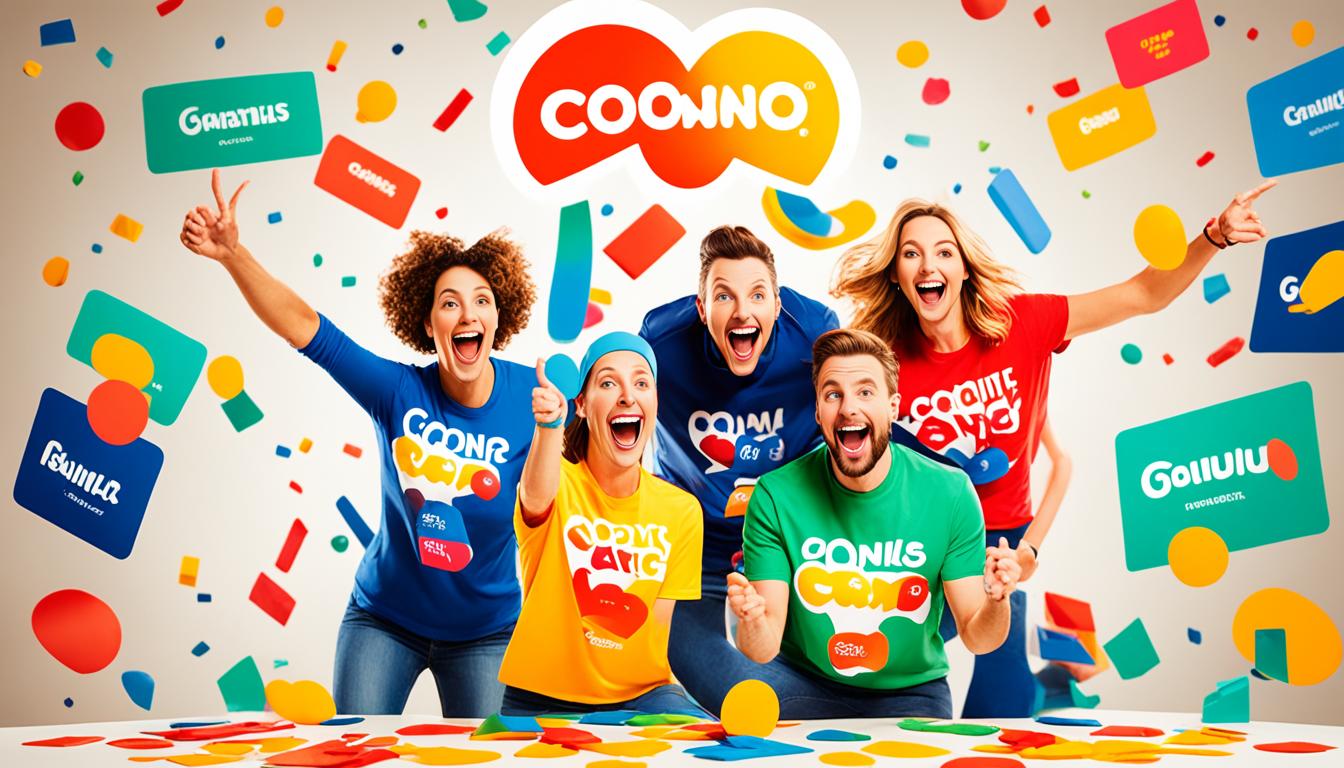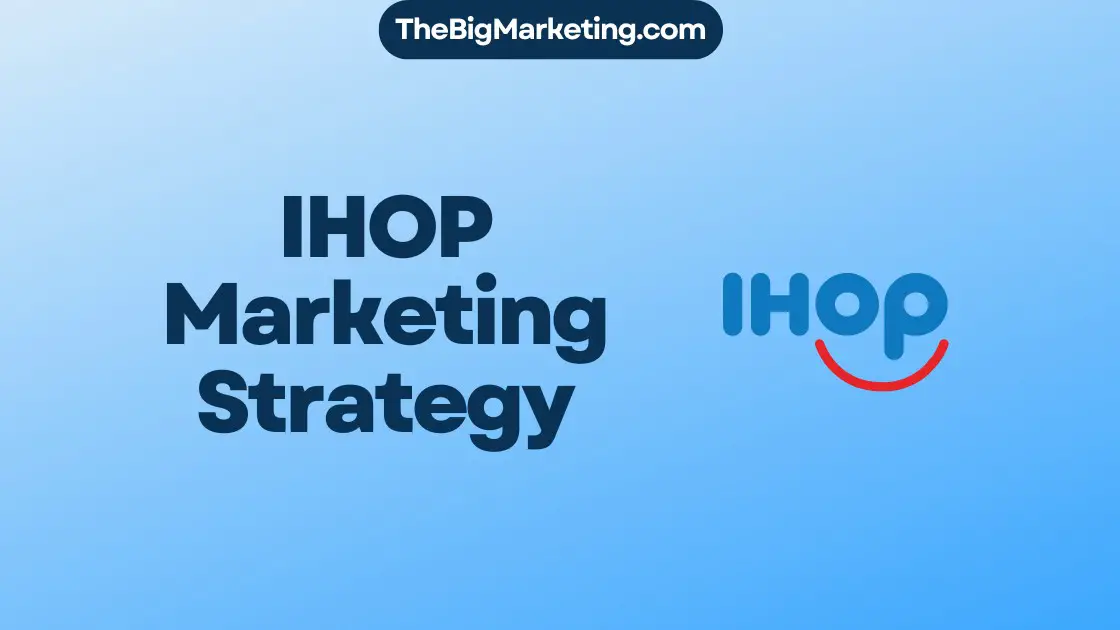In today’s competitive retail landscape, marketing strategies play a crucial role in maintaining a strong brand image and driving customer engagement. Costco Wholesale, one of the leading players in the industry, understands the importance of a well-crafted marketing strategy. As they look ahead to 2024, Costco is focused on implementing innovative approaches to branding, promotions, and customer engagement to further strengthen their market position.
By analyzing Costco’s advertising tactics, we can gain valuable insights into the key elements that contribute to their success. From special discounts and limited-time offers to digital marketing initiatives and brand awareness campaigns, Costco employs a variety of strategies to attract and retain customers.
Key Takeaways:
- Costco is committed to maintaining its position as a leader in the retail industry through its marketing strategy.
- They leverage innovative approaches to branding, promotions, and customer engagement.
- Costco’s advertising tactics include special discounts, limited-time offers, and digital marketing initiatives.
- They run brand awareness campaigns to reinforce their value proposition and differentiate themselves from competitors.
- Customer engagement is crucial to Costco’s success, which they achieve through exceptional service and attention to detail.
The History and Business Model of Costco
Founded in 1983, Costco Wholesale Corporation is a retail giant known for its high-quality products offered at wholesale prices. With a unique business model and strategic approach to branding and market positioning, Costco has become a prominent player in the industry.
Costco’s Competitive Analysis
Costco’s success can be attributed to its competitive analysis strategies. The company carefully analyzes the market to identify its competitors’ weaknesses and capitalize on its own strengths. By conducting thorough research and gathering data, Costco stays ahead of the competition and continually refines its business model to meet customer demands.
Costco’s Branding Approach
One of Costco’s key strengths lies in its branding approach. The company focuses on providing high-quality products at affordable prices through its membership-based model. By offering exclusive access to a wide range of products, Costco has built a loyal customer base and established a strong brand image centered around value for money.
Costco’s Market Positioning
Costco has strategically positioned itself as a cost-effective shopping destination. By selling a limited selection of products in bulk, the company negotiates better deals with suppliers, allowing them to offer competitive prices to customers. This market positioning has attracted consumers looking for savings without compromising on quality. As a result, Costco has gained a reputation as a go-to option for value-conscious shoppers.
Overall, Costco’s history and business model have played a significant role in its success. By conducting thorough competitive analysis, employing a strategic branding approach, and positioning itself as a cost-effective shopping destination, Costco has solidified its position as a leader in the retail industry.
Key Elements of Costco’s Marketing Strategy
Costco’s marketing strategy is centered around several key elements that contribute to its success and market positioning. By utilizing a variety of promotional strategies, investing in digital marketing initiatives, and running brand awareness campaigns, Costco aims to attract and retain customers while differentiating itself from competitors in the market.
Promotional Strategies
Costco employs a range of promotional strategies to engage customers and drive sales. These include special discounts, limited-time offers, and in-store events. By offering exclusive deals and promotions, Costco creates a sense of urgency and encourages customers to take advantage of the value they provide. These promotions not only attract new customers but also retain existing ones, fostering loyalty and driving repeat business.
Digital Marketing Initiatives
Recognizing the importance of digital channels, Costco invests in various digital marketing initiatives to reach a wider audience and enhance the online shopping experience. Through targeted online advertising, search engine optimization, and social media campaigns, Costco extends its brand reach and ensures that it remains visible and accessible to potential customers in the digital landscape. These initiatives aim to drive online sales and promote customer engagement by providing a seamless and convenient online shopping experience.
Brand Awareness Campaigns
To reinforce its value proposition and build brand recognition, Costco runs brand awareness campaigns. These campaigns showcase Costco’s unique offerings, such as its high-quality products, competitive pricing, and exceptional customer service. By effectively communicating these key differentiators, Costco aims to establish itself as a trusted and preferred shopping destination among consumers. Brand awareness campaigns are vital in increasing customer loyalty, attracting new customers, and maintaining a strong market position.
Promotional Strategies, Digital Marketing Initiatives, and Brand Awareness Campaigns
The following table highlights the key promotional strategies, digital marketing initiatives, and brand awareness campaigns implemented by Costco:
| Promotional Strategies | Digital Marketing Initiatives | Brand Awareness Campaigns |
|---|---|---|
| Special discounts | Targeted online advertising | Communicating unique value proposition |
| Limited-time offers | Search engine optimization | Emphasizing high-quality products |
| In-store events | Social media campaigns | Highlighting competitive pricing |
Costco’s Customer Engagement Strategies
Costco understands the importance of customer engagement and has implemented strategies to create a positive shopping experience for its members. With a focus on exceptional customer service and attention to detail, Costco ensures that customers feel valued and satisfied with every interaction.
To enhance customer engagement, Costco leverages data analytics and customer feedback to continuously improve its operations. By gathering and analyzing data, Costco can identify trends, preferences, and areas for improvement. This data-driven approach allows them to tailor their offerings and services to meet the specific needs of their customers.
Furthermore, Costco fosters a sense of community among its members. Through exclusive events and member benefits, Costco creates a unique membership experience that goes beyond traditional shopping. These events provide opportunities for members to connect, engage, and build relationships with fellow shoppers, enhancing the overall Costco experience.
By prioritizing customer engagement, Costco establishes a strong bond with its members. This relationship is built on trust, loyalty, and a shared sense of community. It is through these strategies that Costco has been able to create an exceptional shopping experience that keeps customers coming back.
| Customer Engagement Strategies | Impact |
|---|---|
| Exceptional customer service | Builds trust and loyalty |
| Data analytics and feedback analysis | Allows for continuous improvement |
| Exclusive events and member benefits | Fosters a sense of community |
Costco’s Expansion and International Presence
Since its inception in 1993, Costco has ventured beyond the borders of the United States, embarking on a journey of international expansion that has shaped its global footprint. Today, the company’s presence extends to various countries across the world, allowing it to tap into new markets and attract a diverse customer base.
Costco’s first foray into international territories began with the opening of its inaugural warehouse in Canada. This marked the beginning of a strategic expansion plan that aimed to replicate Costco’s success in the American market on a global scale.
Building on the momentum of its initial international endeavor, Costco further expanded its reach to countries such as Mexico, the United Kingdom, Japan, and Australia. By establishing warehouses in these diverse locations, Costco has been able to establish a broad and geographically dispersed presence.
This international expansion has proven to be instrumental in Costco’s growth and success. By tailoring its offerings to the specific needs and preferences of each market, Costco has been able to effectively penetrate and establish itself as a trusted retailer in multiple regions.
As Costco continues to expand its international footprint, the company remains dedicated to upholding its core values of quality, value, and customer satisfaction. By maintaining a strong presence in both domestic and international markets, Costco is well-positioned to continue its trajectory of success in the global retail landscape.
The Role of Leadership in Costco’s Success
Leadership plays a crucial role in driving the success and growth of any organization, and Costco Wholesale is no exception. From its inception, the company has been blessed with visionary leaders who have shaped its culture and fostered a customer-centric approach. Two individuals, in particular, have left a lasting impact on Costco’s journey: Jim Sinegal and Craig Jelinek.
Jim Sinegal, as one of the co-founders of Costco, played an instrumental role in setting the stage for the company’s success. His leadership style and dedication to excellence became deeply ingrained in Costco’s DNA. Sinegal believed in creating a culture that prioritized exceptional service, value, and employee satisfaction. His hands-on approach and commitment to maintaining strong relationships with customers and employees set the foundation for Costco’s unique business model.
Under Sinegal’s leadership, Costco focused on providing high-quality products at affordable prices, driving customer loyalty and word-of-mouth recommendations. This approach, combined with an emphasis on employee satisfaction and fair wages, created a virtuous cycle of mutual success. Sinegal’s relentless pursuit of delivering value and an exceptional shopping experience helped establish Costco as a leader in the retail industry.
Following in Sinegal’s footsteps, Craig Jelinek took the helm as Costco’s CEO in 2012. Jelinek has continued to uphold the principles set forth by his predecessor and build upon Costco’s legacy. With a strong commitment to the company’s core values, Jelinek has been instrumental in guiding Costco through a rapidly evolving retail landscape.
Under Jelinek’s leadership, Costco has made strategic investments to enhance the customer experience. The company has focused on expanding its digital presence, leveraging technology to improve online shopping and delivery options. Jelinek’s leadership has also seen Costco maintain its commitment to employee welfare by implementing initiatives such as the recent minimum wage increase.
The synergy between the leadership styles of Sinegal and Jelinek has propelled Costco’s success. Their shared vision of prioritizing customer satisfaction, providing exceptional value, and fostering a positive work environment has been the driving force behind Costco’s continued growth and expansion.
The Continued Success of Costco
By staying true to their principles and embracing innovation, Costco’s leadership team has ensured the company remains at the forefront of the retail industry. Jim Sinegal’s commitment to exceptional service and value, combined with Craig Jelinek’s strategic vision, has created a culture of continuous improvement and adaptation.
Under their guidance, Costco has successfully navigated challenges, capitalized on opportunities, and maintained its position as a trusted and beloved brand. As Costco continues to evolve and expand, the strong leadership provided by individuals like Sinegal and Jelinek will remain essential in steering the company towards future success.
Organizational Adaptation and Innovation
As a forward-thinking and adaptable company, Costco has consistently made organizational shifts and innovations to navigate the ever-changing market landscape. Recognizing the rising popularity of e-commerce, Costco embraced this shift by launching its online platform, Costco.com. This move allowed the company to cater to the growing demand for online shopping and expand its reach to a wider customer base.
In addition to e-commerce, Costco has also focused on developing and expanding its private label offerings. By diversifying their product range and introducing high-quality private label brands, Costco has been able to provide customers with unique options while maintaining higher profit margins. This strategic move has not only helped Costco differentiate itself from competitors but also solidify its position as a trusted retailer.
Moreover, Costco’s commitment to innovation extends to its operational processes. The company consistently explores new technologies and strategies to enhance efficiency and provide an exceptional shopping experience for its members. By leveraging advanced data analytics, Costco ensures that it can better understand customer preferences, optimize inventory management, and offer personalized recommendations.
Expansion of Private Label Brands
Costco’s private label brands have played a crucial role in its success and have become a key component of its product offering. These private label brands span a wide range of categories, including groceries, household essentials, and even electronics. By expanding their private label portfolio, Costco has cemented its position as a destination for value-conscious shoppers seeking high-quality products at affordable prices.
| Benefits of Costco’s Private Label Brands | Examples of Costco’s Private Label Brands |
|---|---|
| Higher profit margins | Kirkland Signature |
| Exclusive products | Kirkland Signature Supreme Diapers |
| Quality assurance | Kirkland Signature Organic Extra Virgin Olive Oil |
| Unique product offering | Kirkland Signature Bacon |
The expansion of Costco’s private label brands not only allows the company to offer products that cannot be found elsewhere but also provides Costco with greater control over pricing and quality. This control ensures that customers receive exceptional value for their money, further solidifying their loyalty to the brand.
Costco’s commitment to organizational adaptation, innovation, and the expansion of private label offerings has been paramount to its success. By staying ahead of market trends and meeting customer demands, Costco continues to evolve and thrive in the highly competitive retail industry.
Pricing and Value Proposition
One of the key factors that sets Costco apart is its unique pricing model. By leveraging their bulk purchasing power, Costco is able to negotiate lower prices with suppliers, allowing them to offer high-quality products at affordable prices. This pricing model enables Costco to provide exceptional value to its members, who can enjoy significant savings on a wide range of products.
Costco’s value proposition goes beyond just competitive pricing. It is built on three pillars: unique product selection, competitive pricing, and exceptional customer service.
The company carefully curates its product assortment, offering a wide range of high-quality items that appeal to a diverse customer base.
With their bulk purchasing power and strategic supplier relationships, Costco is able to secure competitive prices, ensuring that their members get the best possible deals. This focus on affordability has made Costco a go-to destination for savvy shoppers looking to stretch their dollars without compromising on quality.
In addition to competitive pricing and product selection, Costco is renowned for its exceptional customer service. The company is committed to ensuring a positive shopping experience for its members, providing knowledgeable and friendly staff, easy return policies, and a customer-centric approach in all interactions.
Costco’s Value Proposition
| Unique Product Selection | Competitive Pricing | Exceptional Customer Service |
|---|---|---|
| Wide range of high-quality products | Negotiated lower prices due to bulk purchasing | Knowledgeable and friendly staff |
| Curated assortment catering to diverse customer needs | Best possible deals for members | Easy return policies |
| Customer-centric approach in all interactions |
Costco’s value proposition is the foundation of its success. By offering a unique product selection, competitive pricing, and exceptional customer service, the company continues to attract and retain loyal members who value affordability and quality.
Conclusion
Costco’s marketing strategy for 2024 exemplifies a commitment to maintaining a strong brand image and driving customer engagement. By leveraging their unique business model, customer-centric approach, and emphasis on value, Costco has solidified its position as a leader in the retail industry. Through innovative branding initiatives, strategic promotional campaigns, and a relentless focus on customer satisfaction, Costco is well-prepared for continued success in the coming years.
One of the key pillars of Costco’s marketing strategy is their emphasis on brand awareness. By investing in a comprehensive brand awareness campaign, Costco ensures that their values, offerings, and customer-centric approach are effectively communicated to their target audience. This not only helps attract new customers but also strengthens the loyalty of existing members.
Furthermore, Costco’s marketing strategy is centered around leveraging their unique business model to deliver exceptional value to their members. By purchasing products in bulk and negotiating favorable prices with suppliers, Costco remains able to offer high-quality products at affordable prices. This value proposition, combined with their unwavering commitment to exceptional customer service, creates a shopping experience that resonates with consumers and fosters long-term loyalty.







